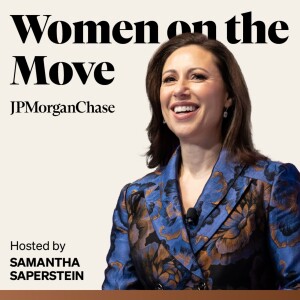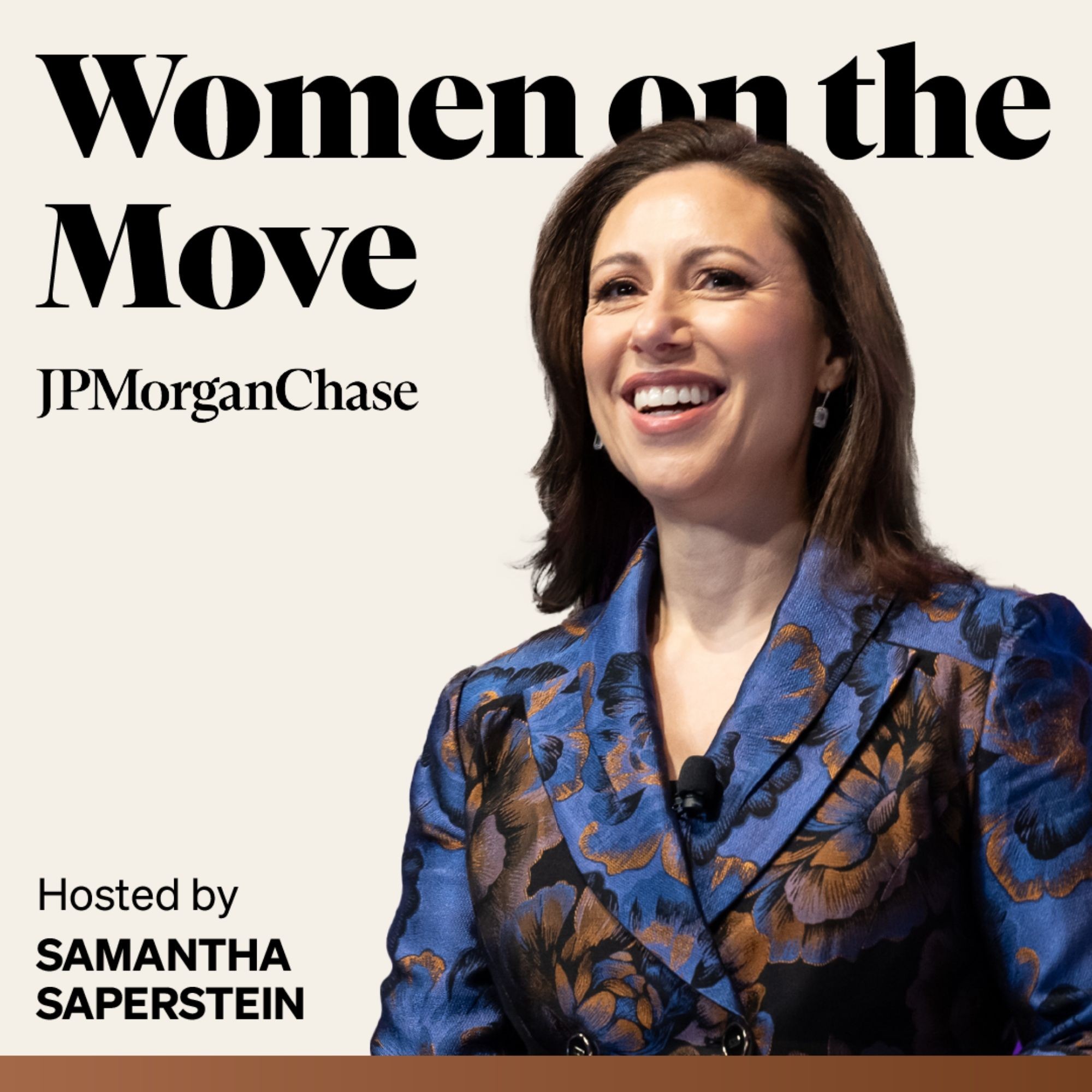Episodes

Thursday Feb 25, 2021
Episode Six: Byna Elliot, Head of Advancing Black Pathways at JPM Chase
Thursday Feb 25, 2021
Thursday Feb 25, 2021
Byna Elliot is paving roads for change
For over two decades, Byna Elliot has created opportunities for growth and development within low- and moderate-income communities, and now she’s bringing her expertise to JPMorgan Chase, leading the Advancing Black Pathways program at a pivotal moment in American history. In this episode, Byna joins Women on the Move’s Sam Saperstein to discuss what it’s been like to helm the Advancing Black Pathways program during COVID-19, how changes must be made with intention, and advocating for yourself in the workplace.
Forging Pathways
As the Head of Advancing Black Pathways, Byna oversees the bank’s $30 billion commitment to closing the wealth gap for Black and Latinx communities. From transitioning HBCU graduates into the workforce, to fostering entrepreneurship by increasing access to capital for Black and LatinX business owners, Byna works tirelessly to strengthen the next generation of leaders.
Arriving at JPMorgan Chase just months before COVID-19, Byna quickly pivoted the entire operation to meet the unexpected challenges brought on by the pandemic. With some students lacking access to the technology they needed for online learning or struggling to stay focused, it was no longer reasonable to expect the same level of academic output that was once possible. To meet students where they were at, Byna and the Advancing Black Pathways team worked with Thurgood Marshall and the United Negro College Fund to create a million dollar hardship fund and to modify the admissions qualifications in order to boost students’ chances for success, such as lowering the GPA requirements. “We wanted to make sure that we made some changes that allow these great students that we’ve supported over the years to have an opportunity to continue on with their education,” says Byna. “We want to make sure that we were part of the solution so that those students didn’t have debt without the prize of having a degree.”
Choosing a Focal Point
This isn’t the first time Byna has led an initiative designed to reverse economic inequality, but the culmination of the protests following the murder of George Floyd and the blatant disparities highlighted by COVID-19’s destruction, she found herself reexamining her approach. “While I was extremely proud of the work I had [previously] done, it wasn’t focused on race,” she says. “When I pulled the data, I didn’t see the outcomes on race that I thought I should have seen given my focus on low and moderate income communities. It reminded me how important it is to really hone in on the communities and cultures or races that you want to affect. And so the opportunity to come to an organization that has been so bold and courageous was really important.”
Being Your Greatest Spokesperson
We’ve all heard about backlash women might face after sticking up for themselves in the workplace, but if we don’t advocate for ourselves, no one else will. Halfway through her career, when Byna was the only woman on her company’s senior leadership team, she had to make a choice: she could either continue bending over backwards to accommodate her male coworkers while juggling her responsibilities as a wife and a mother, or she could speak up.
So she spoke up.
“They wanted to start a meeting at six o’clock,” she explains, noting that the early start time meant having to drop her kids off at her mother’s house two hours prior so she could get them ready for school. Believing that her co-workers should never see her sweat, she agreed to the proposed schedule despite its obstacles. “So I get to the office before six I’m there, smiling, ready, looking calm, and collected, the gentlemen saunter in and they laugh, they joke, they’re talking football, they’re talking sports. And I am sitting there steaming and thinking they have no idea what it took for me and my family to get into this office.”
When the meeting wrapped and her boss asked whether they could meet again at the same time the next day, she put her foot down. “I said ‘the same things that you expect for your
wife to enable you getting into the office is the same thing my husband expects for me. It takes a lot for me to get in here at six o’clock in the morning and it doesn’t work for me.’”
The following morning, the meeting started at 8 a.m.
All because Byna voiced her needs and her boss listened.


No comments yet. Be the first to say something!